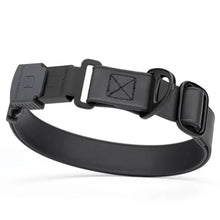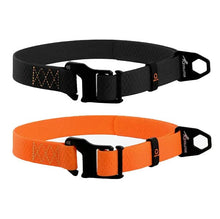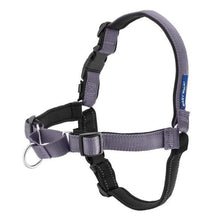How To Prevent Joint Injuries In Your German Shepherd Dog

German shepherds are medium to large sized dogs. Due to their genetics, size, and high activity level, they can be prone to joint injuries and disease. Despite this, there are things you can do to help prevent your German shepherd from developing painful joint problems as they age.
Since most joint problems are the result of injuries that occur early in life, you can help protect puppies by limiting some of their activity level. Although they have impressive stamina and strength at a young age, it’s important to remember that their joints are not yet fully developed.
In fact, statistics for German shepherds show how important it is to protect their joints as they mature. According to Parnell Living Science, German shepherds are at high risk of getting arthritis by age 8. Sadly, 80% of dogs by age 8 and 20% of dogs by age 1, will show some signs of arthritis due to their size and the amount of activity they do.
The great news is, there are some things you can do to help prevent joint and spine injuries from happening to your dog:
Prevent Over Activity in Puppies
Since the skeletal system of a German shepherd is not fully developed until 18 to 24 months, it’s best to try to limit intense exercise until they are fully grown. Some of these activities include:
- Crazy jumps and leaps
- Rapid pivots while running full speed
- Short stops and skids
- Strenuous hikes
- Running along on bike rides
- Hard, long runs
Manage Their Environment
German shepherds love to run, jump, spin, zoom, and basically get crazy to burn off their abundant energy. Although it’s tempting to admire these skills, by making some minor accommodations to your environment, you may be able to prevent some joint and spine injuries from developing.
For instance, making these minor accommodations can help protect your pet:
- Provide a stool or stairs for them to get on and off the bed or high furniture
- Use scatter rugs to prevent them from running on slick flooring
- Provide a ramp rather than have them jump in and out of a SUV or truck
The Right Diet for Proper Growth
Since German shepherds will weigh 50 or more pounds when fully grown, for diet purposes, they are considered a large dog. As puppies, they grow quickly but when they grow too fast, it can stress the joints and cause skeletal problems.
According to VCA, “developmental orthopedic disease (DOD) is more prevalent in large breed dogs. Bone and joint disorders such as hip dysplasia and OCD (osteochondritis dissecans) affect many large breed pups.”
Therefore, it’s important that large breed puppies eat a diet that can support rapid bone and muscle growth and prevent them from getting fat. Puppies also require more protein than adult dogs, however too much protein can damage healthy growth and result in an imbalance of calcium and phosphorus.
The right calcium to phosphorus ratio is vital for developing bones and joints (as well as vitamin D, vitamin A, copper, zinc, and manganese). However, the right amounts are critical because a lack of or an overabundance of any of these can cause orthopedic problems.
In general, German shepherd puppy food should be made for large breeds, made with high quality protein, lower in fat, and have the correct calcium to phosphorus ratio. Talk to your vet and look for a diet that contains at least 30% high quality protein and 9% fat (as fed on a dry matter basis).
Once your dog is grown, transition to the right high-quality adult dog food for the weight and activity level of your shepherd. There are hundreds of AAFCO foods on the market and they are often chosen by the dog’s sensitivities and health needs.
Supplements to Help Arthritis
Supplements should be fed under the guidance of your vet, especially for puppies or when dogs are taking medication. However, there are some common supplements that are considered safe for most grown dogs that may even help joint inflammation. These include:
- Green lipped mussel
- Glucosamine and chondroitin
- Omega 3 oil
- Turmeric
- CBD Oil
Health Care
At the first sign of injury, it’s important to provide veterinary care and rest so that the joints can heal. By feeding a healthy diet, providing proper exercise, and keeping your dog’s weight in the right range, minor problems can usually heal on their own. Other more natural interventions can also include:
- Integrative veterinary health care
- Acupuncture
- Cold laser
- Chiropractic
When these fail, you’ll need to make a decision on how to best help your dog and learn what your options are. Don’t be afraid to ask for a referral to an orthopedic specialist or neurologist for a second opinion.
Genetics
Genetics can also play a role and cause problems such as hip dysplasia, elbow dysplasia, and degenerative myelopathy. While you may be limited in how much you can do to prevent these hereditary problems, preventing your pet from growing too fast, avoiding strenuous exercise, maintaining a healthy weight, providing medical intervention, and feeding a balanced diet may help slow the onset of these genetic problems.
We hope these tips help you keep your German shepherd’s joints in great shape. As with everything, prevention is one of the best things you can do, especially in puppies. Later in life, a good diet, exercise, and veterinary care can help your dog live a long, healthy life.
You may also like: 9 Of The Best Supplements for German Shepherds






















